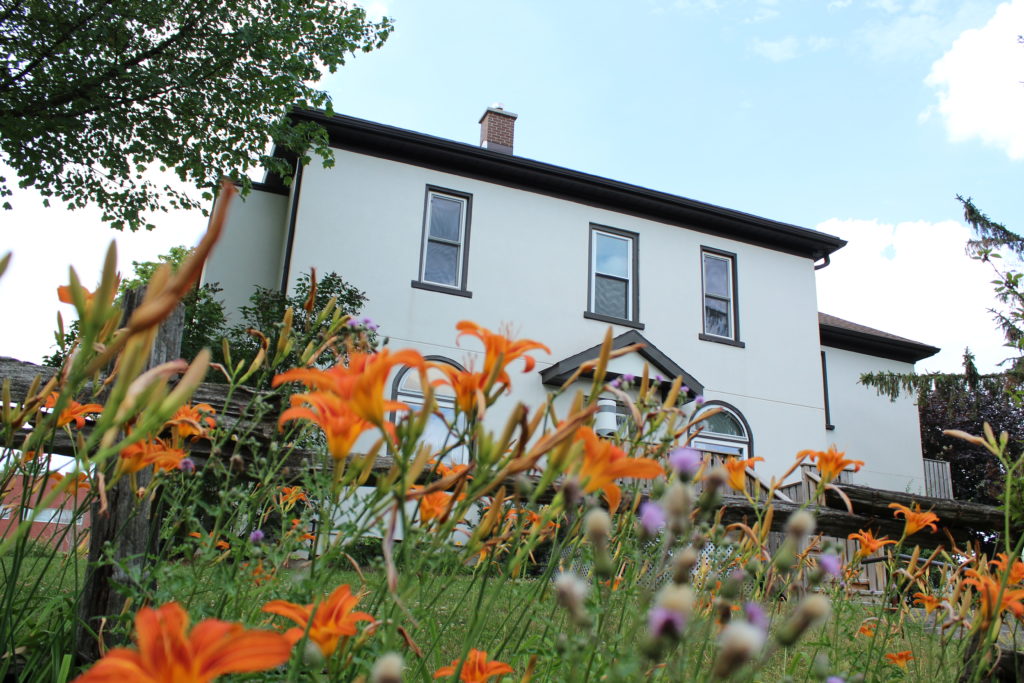Known as the Schweitzer Farmhouse in 1850, Graduate House (Grad House) was the first house on UW soil.
Today, it serves as a restaurant and social space for grad students, undergrads and faculty members alike.
Cam Bartel, assistant manager, said the aim of the pub isn’t to make money — it’s to provide a social space for students, forming a sense of community.
“We are a social club for grad students, we are also a place on campus for buying quality, nutritious meals at a decent price — that’s what we’re going for, as well as local and micro beers at a good price,” he said.
“So our goal isn’t to make money, but our goal is to provide the best quality of product we can for grad students.”
Now, the Grad House is the only remaining pub on campus and is considered a non-essential service under the Student Choice Initiative (SCI).
As it depends on both student fees and sales for funding, the future is uncertain for Grad House.
Along with hospitality and social services, the Grad House provides employment opportunities for graduate students and their spouses.
In a worst-case scenario, funding changes could affect both the services and the opportunities provided by Grad House.
“Honestly, it’s just difficult. It could be a matter of changing staffing, changing hours, changing menus — I don’t really want to go into worst-case scenario because it’s difficult to try and predict but it would be something along those lines,” Bartel said.
If the Student Choice Initiative (SCI), where students can opt out of non-essential services online, isn’t revoked, funding for the Grad House will become uncertain.
The campus institution will require new budgeting each semester. The fee changes may adversely affect services the Graduate Student Association (GSA) has to offer.
David Billedeau, vice-president of the GSA, stated that they are working with community stakeholders to voice opposition to the SCI.
The GSA has hired a political director who will help them be more politically active in the community.
“I think that the GSA is going to be a lot more politically active this coming academic year.
We’ve recently hired a political director and we’re now engaging more than we ever have before with the local academic community.
I think that, over the next number of years, with the current provincial administration, campuses are really going to have to demonstrate … that these funding cuts have a really detrimental effect on graduate students,” Billedeau said.
“So we’re going to be reaching out not only to the academic community a lot more, but also to the faculty within (UW) and to external stakeholders. Namely government officials.”
Bartel stated that the SCI is illogical in that it considers some services essential, but the people and organizations providing them non-essential.
“So the government decided that student health care and student dental care were both essential services, the Grad Student Health and Dental plan are managed by the GSA, however, the government determined that the actual fee that goes to support the GSA is not mandatory so the people that administer a mandatory thing are not mandatory, which makes no sense,” he said.
The GSA is also encouraging students to not opt out of fees considered non-essential by the government. In addition, students can contact their MPPs directly by writing letters or calling their offices.
“I think one of the most important things to do is: one, touch base with the GSA, whether your departmental rep or the GSA office. And two, don’t be afraid to write directly to your MPP,” Billedeau said.
“I think the Government of Ontario today has recently shown a willingness to backtrack on controversial initiatives that they implemented, and I’m referencing, of course, the 180 the government turned on Autism Funding, and I think that, with increased pressure on the provincial government, they might reconsider their take on post-secondary education funding in Ontario.”































